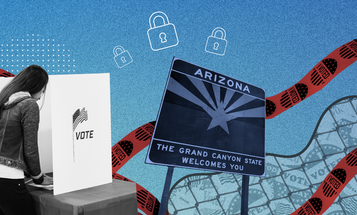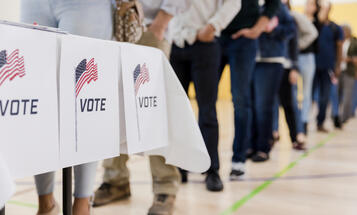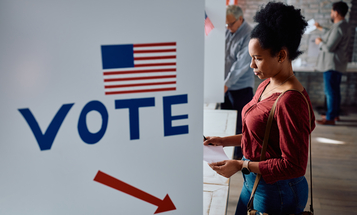
The Purges This Time
Stories of voter purge attempts and voter bullying across the country.
 Partisan election administrators and the group True the Vote (TTV) and its affiliates attempted to purge thousands of voters from the rolls before the election, claiming they were not citizens or had died.
Partisan election administrators and the group True the Vote (TTV) and its affiliates attempted to purge thousands of voters from the rolls before the election, claiming they were not citizens or had died.
For example, right before the election a group calling itself The Voter Integrity Project in North Carolina challenged thousands of registrations claiming people were dead. In addition to wasting the time of already stressed elections officials who threw many of the challenges out because the data matching the group used was so flawed, hundreds of people in NC had to prove they weren’t dead to the BOE.
According to the Houston Chronicle, in Texas state election officials “repeatedly and mistakenly matched active longtime Texas voters to deceased strangers across the country— some of whom perished more than a decade ago — in an error-ridden effort to purge dead voters just weeks before the presidential election. . . Voters in legislative districts across Texas with heavy concentrations of Hispanics or African-Americans were more often targeted in that flawed purge effort, according the Chronicle's analysis of more than 68,000 voters identified as possibly dead.
In Florida earlier this year, the governor and secretary of state claimed 182,000 noncitizens had been flagged on the state’s voter rolls. But reporters and activists found hundreds of native and naturalized U.S. citizens among them. Additionally, advocates found that a hugely disproportionate share of the flagged group was Latino or black. The list of potential ineligible voters eventually whittled down to 198, with even that number in question.
After being embarrassed by his own inaccuracy, Colorado Secretary of State Scott Gessler decided not to pursue a voter purge he initiated by sending letters asking almost 4,000 voters to prove their citizenship. After 482 people responded with proof and almost 90 percent of the suspected non-citizens were verified through a federal database, Gessler planned to challenge 141 names still in question, but did not have enough time to handle the hearings before Election Day. Then after early voting had actually begun in the state, Gessler announced that a new round of checks revealed more individuals who he believes are illegally registered. However, only fourteen of the 141 flagged in that first round were actually removed from the rolls — and none have a record of voting.



